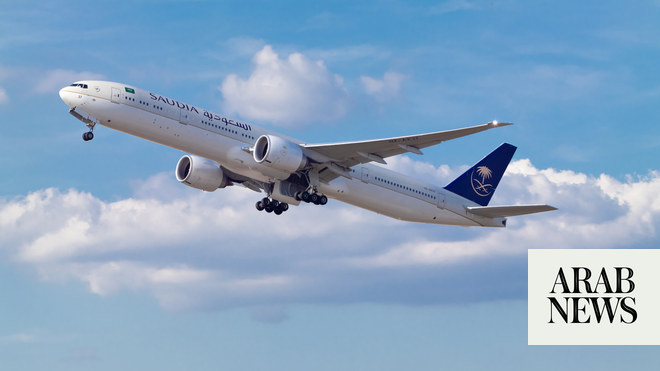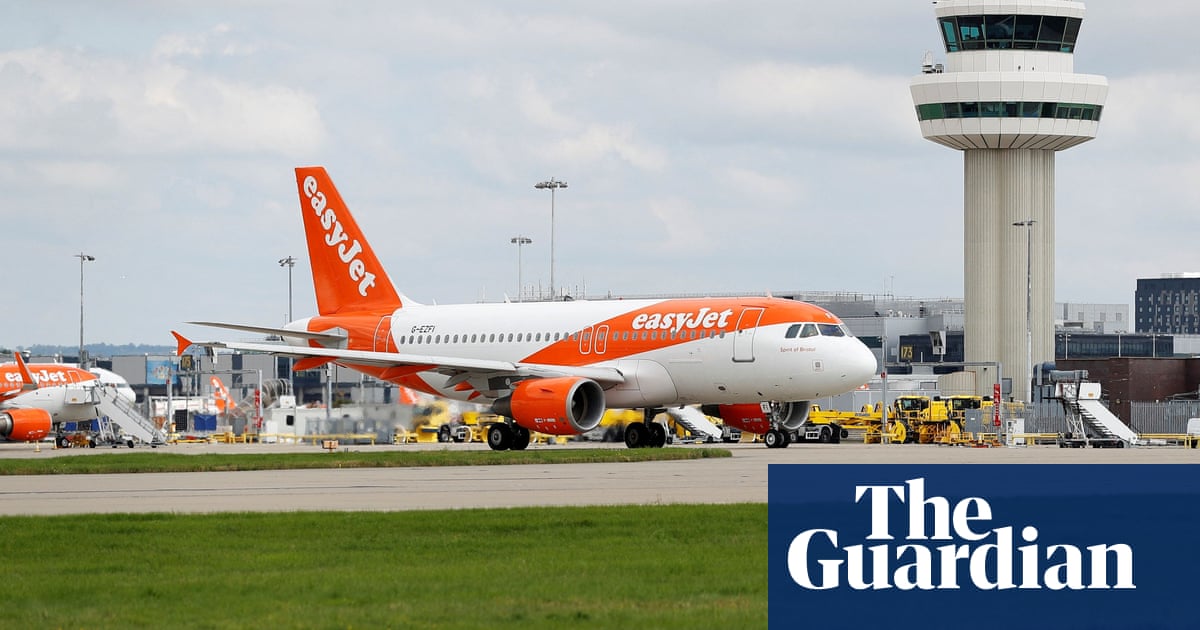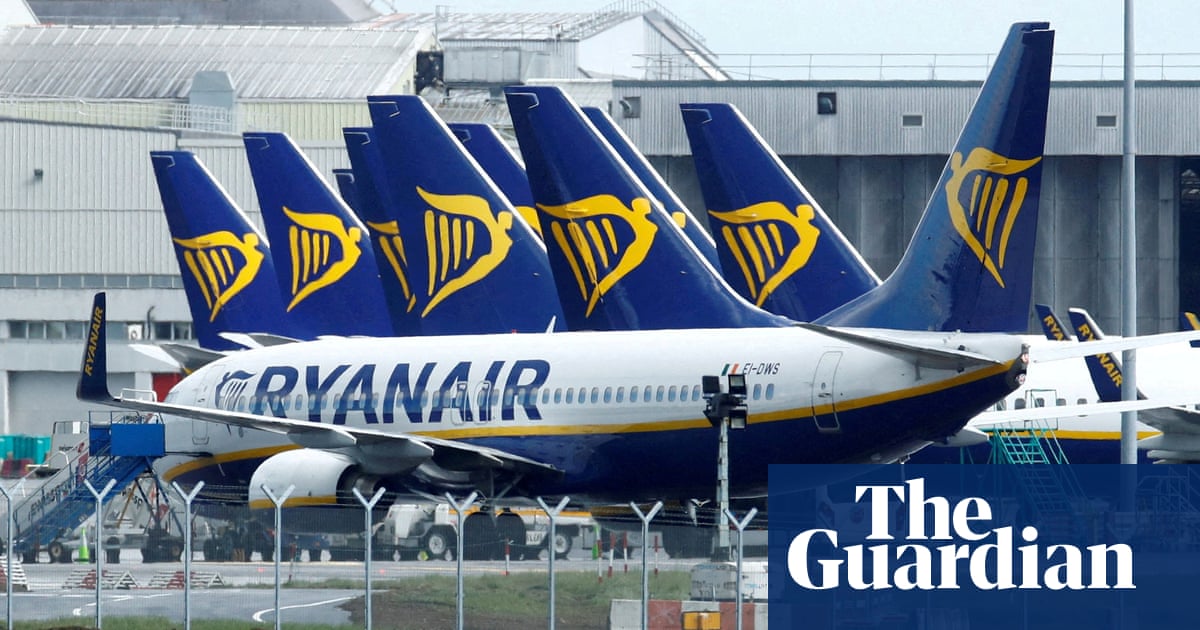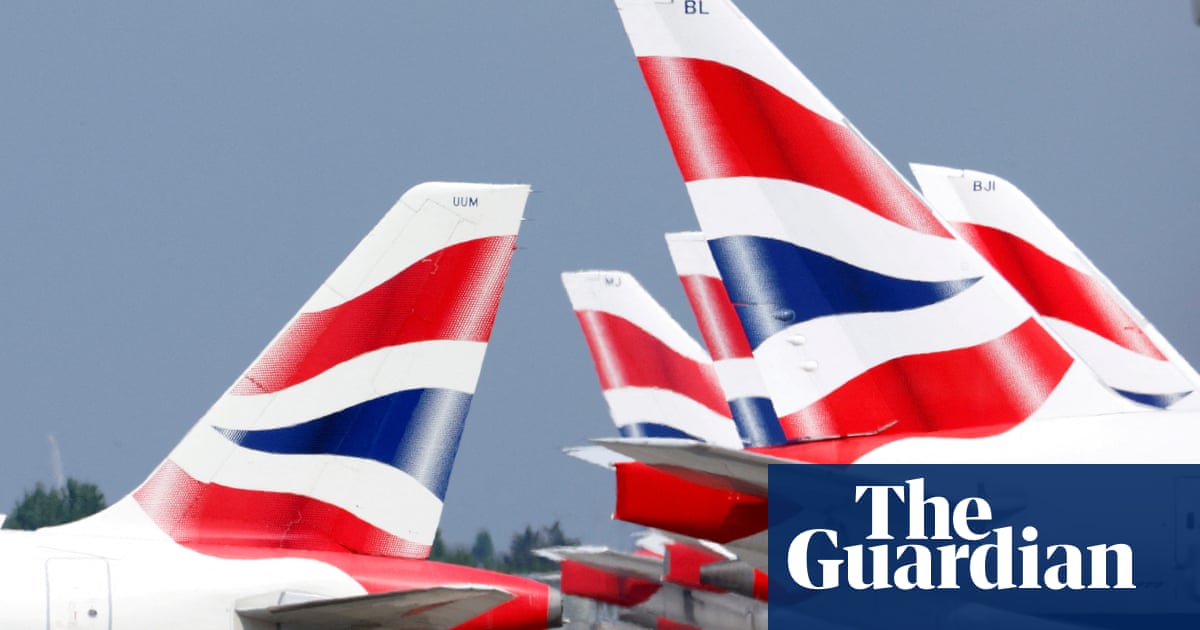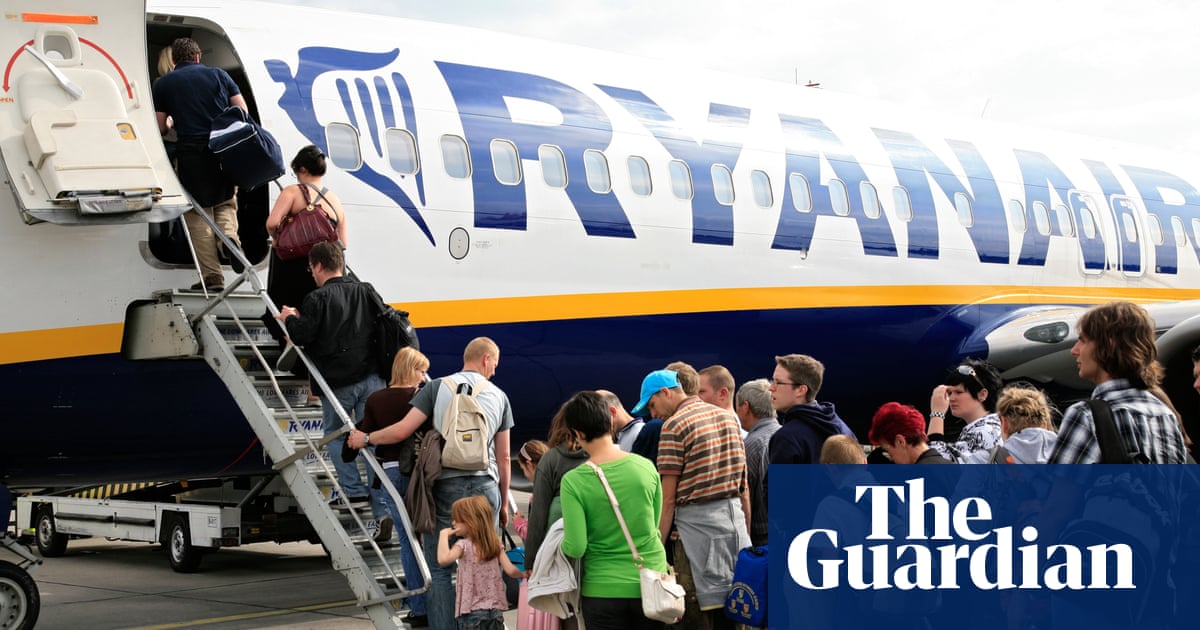
Ryanair has said last month was its best ever for passenger numbers even though it was forced to cancel hundreds of 350 flights because of the air traffic control systems failure in Britain.
The Irish carrier said on Monday that 63,000 of its passengers had been affected by the disruption that continued for several days after the UK’s national air traffic services, Nats, was forced to revert to manual flight management after a computer failure a week ago.
The temporary collapse of ATC services, thought to be caused by a corrupted flight plan, came on the August bank holiday, one of the busiest times of the year because of summer holiday travel.
The problem forced airlines to cancel nearly 1,600 flights into and out of the UK, with further knock-on cancellations and delays across Europe as planes and crews were left out of position, according to the data company Cirium.
The cancellations barely caused a blip in global air traffic numbers – data from the industry body Eurocontrol showed there were 31,300 flights on the day of the outage – and Ryanair was still able to report its biggest ever month as people returned in force to travel after the end of the coronavirus pandemic restrictions.
The airline carried 18.9 million passengers during August, which it said was up 11% from the equivalent period in 2022. The previous monthly record was 18.7 million, set this July.
Ryanair, among the biggest corporate polluters in Europe, only shares the average carbon emissions data of its flights per kilometre, but it is likely that the record passenger numbers corresponded to more carbon emissions, which contribute to global heating.
Despite their strong earnings in recent months, the airline industry used the opportunity of the air traffic control failure to vent its frustrations with Nats, whose services are a significant cost. Ryanair on Monday said the “computer ‘failure’ […] has still not been explained”, in a pointed aside to its normal traffic release.
The International Air Transport Association (Iata) called for changes to rules on who bears the costs of disruptions, arguing that airlines were not responsible for the chaos but had to spend as much as £100m cumulatively on refunds and other costs such as putting on replacement flights.
Willie Walsh, the director general of Iata, said: “It’s very unfair because the air traffic control system, which was at the heart of this failure, doesn’t pay a single penny.”






